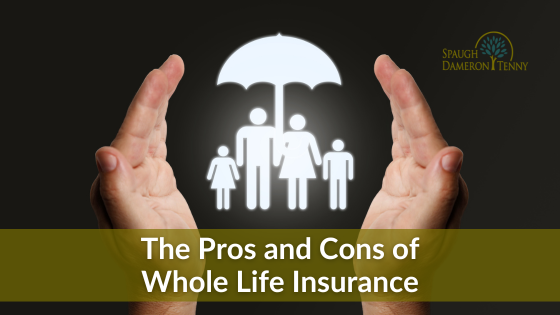According to the American Council of Life Insurers, permanent insurance is the most common type of life insurance purchased in the U.S. today. There is a variety of permanent life insurance available, but traditional whole life insurance is the most popular.

Life insurance policies come in two main types: permanent life and term life. Whole life insurance is a type of permanent life insurance, meaning the insured person is covered for their entire life as long as the premiums are paid on time. In contrast, term life insurance covers you for a set period of time, such as 10, 20, or 30 years.
Also known as traditional life insurance, whole life insurance provides permanent death benefit coverage for the life of the insured. It is designed to pay out regardless of when you die and can include a savings component in which cash value may accumulate. The cash value of a whole life policy typically earns a fixed rate of interest. As a result, whole life insurance is generally more expensive than term life insurance in part due to the savings component.
Learn more about the advantages and disadvantages of this type of life insurance.
Whole life insurance can be an effective tool for transferring wealth to future generations. It ensures that a substantial income tax-free death benefit is passed on to beneficiaries, providing financial security and preserving the family's wealth for future use.
Wealthy families often face significant estate tax liabilities. Whole life insurance can help offset these taxes by providing liquidity to pay estate taxes without forcing the sale of assets. This allows the family to maintain control over their wealth and pass it on intact to their heirs.
Whole life insurance policies accumulate cash value over time. The cash value grows on a conservative, tax-deferred basis and if properly structured, can be accessed without income tax as well. Wealthy families can use this cash value to diversify their overall investment portfolio and to serve as a hedge against market volatility.
In some jurisdictions, the cash value and death benefit of a whole life insurance policy are protected from creditors. This can be valuable for wealthy families, as it safeguards a portion of their assets from potential legal claims or financial risks.
Whole life insurance can facilitate charitable giving by allowing wealthy families to designate charities as beneficiaries. This ensures that a portion of their wealth is used for philanthropic purposes, leaving a lasting legacy and positively impacting society.
Compared with term life insurance, whole life insurance has higher premiums. One reason is that part of the premium goes to fund the cash value account in the policy. This means that a higher portion of a family's cash flow is earmarked towards the insurance premium than for other objectives.
The cash value component of a whole life insurance policy grows at a relatively conservative rate compared to other investment options. Wealthy families who have access to other investment opportunities may find that the growth potential of whole life insurance does not match their financial goals.
Whole life insurance policies can be complex and require careful evaluation and ongoing management. Wealthy families may need to work closely with financial advisors and insurance professionals to fully understand the policy features, ensure proper funding, and make informed decisions about policy loans, withdrawals, or modifications.
Whole life insurance policies are designed for long-term coverage and typically have inflexible premium payment schedules. While the accumulated cash value can be used for various purposes, accessing it may come with limitations, such as surrender charges or policy loans with interest.
The purchasing power of a whole life insurance policy's death benefit may erode over time due to inflation. Wealthy families should consider this potential risk and assess whether the policy's death benefit adequately addresses their future financial needs and obligations.
Ultimately, the suitability of whole life insurance for wealthy families depends on their specific financial situation, goals, and risk tolerance. It is crucial for them to consult with qualified professionals who can provide personalized advice and help them weigh the pros and cons based on their unique circumstances.
If you are considering life insurance, our financial planners can help your review the different options based on your financial goals. This way, you can be confident you have chosen the life insurance policy that works best for you and your specific situation.
CRN202605-4397199

Shane Tenny, CFP®, is the Managing Partner of Spaugh Dameron Tenny and a nationally recognized financial advisor. Since 2000, he has combined extensive financial knowledge with a passion for behavioral finance—helping clients make informed decisions based on both data and mindset. Shane often contributes to industry publications, appears as a guest on podcasts, and has been a leader in the financial planning field for years. He is known for making complex topics clear and practical for busy, high-income professionals seeking personalized advice they can trust.
Your greatest financial asset isn’t your home or even your portfolio. It’s your ability to earn an income. Years of training and the value of your ...
Read More →Too often, people make life insurance decisions under pressure, driven by fear or confusion, when they should base them on careful analysis. In this ...
Read More →Life changes fast – marriage, divorce, a new child, retirement, or a career transition. But one thing that shouldn’t fall through the cracks is your ...
Read More →